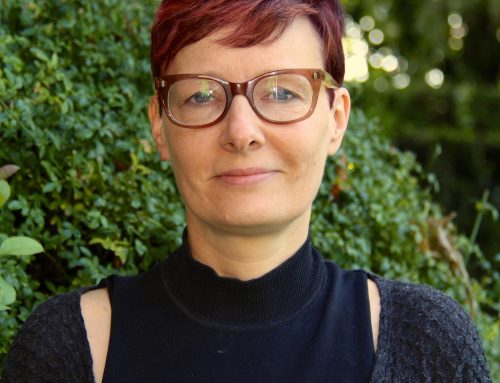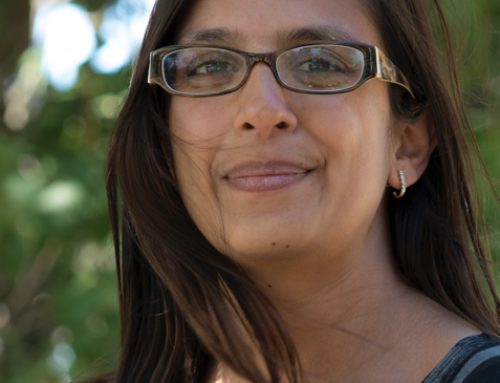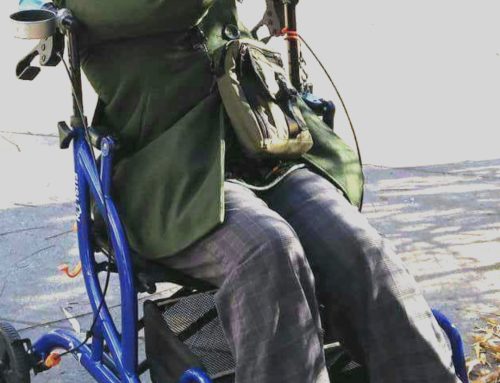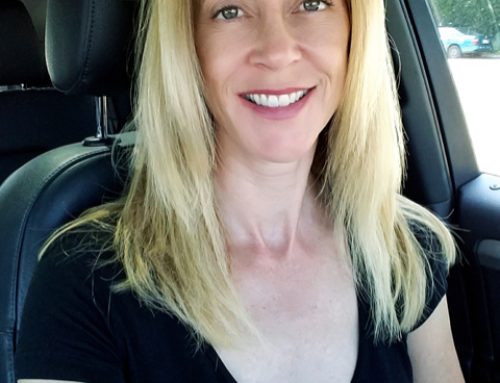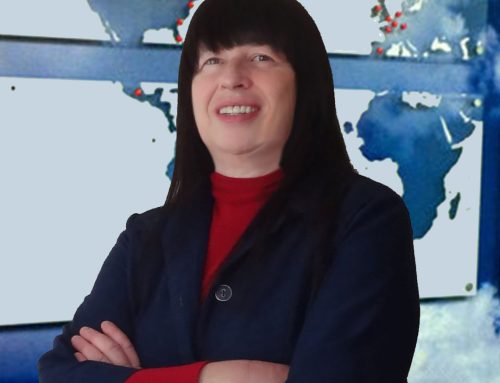The lights in the interrogation room had been dimmed, making the laminate table look almost like real wood. She wasn’t quite sure when that had happened. Probably they’d done it in tiny increments so she wouldn’t notice. They knew how to transform a situation here.
It was the good cop’s turn if her calculations were right. She was thirsty but hopeful that the detective would bring water, maybe even coffee. She didn’t need to worry about the coffee keeping her up or making her hands shake. The digital clock on the wall read 11:09 with red LEDs. She couldn’t see the dot indicating a.m. or p.m.; but even without windows, she knew it was night. She had been awake for seventeen hours; and though her left eye had started twitching, she wasn’t about to break.
“You must be getting tired,” he said, carefully pulling his chair closer to the table.
She was softened by the normalcy of the gesture. The other, shorter cop used the chair as a prop. He’d pull it out, throw it around, scratch the rubber feet against the linoleum floor to see if she reacted to the sound—if that would push her closer to the edge. When he did sit on it, it would be backwards, like a cowboy on a horse.
“I’m okay,” she said, “probably wouldn’t be able to sleep anyway.”
He locked into her gaze for a few seconds. She wondered if what he saw confirmed what he thought he knew about her. Her eyes were probably red from wearing her contacts too long, her eyelids heavy and swollen. She was past that age when anguish made you look doe-eyed and vulnerable. She no longer evoked the instinct to protect in anyone.
“I can get you some coffee,” he said, “or tea, if you prefer.” She nodded, relieved that she managed to predict what would happen for the first time in the past six hours.
“So what is it, tea or coffee?” he said with a half-smile.
“Tea, please,” she replied, immediately regretting she hadn’t said coffee. Tea was the most sensible choice if you wanted to come across as a balanced person. Tea with milk and sugar was for the Florence Nightingales of this world. But this cop was intelligent, maybe he saw through the façade she put up. Coffee would have been the honest choice, telling him clearly that she wasn’t lying. And it would have made her more alert.
When the tea appeared, he started on his questions again. She held her hands around the too-hot mug, exploring her thistle-dry mouth when he asked, “I wonder if you can clarify a few things for me?” That’s how he had started the previous two times. This time she didn’t even nod.
“We’ve talked about the woods behind your house,” he said. “Can you explain to me at what ages the children were allowed to go there?” She tried to sip a bit of tea, but the heat scalded the tip of her tongue.
“The woods are their playground. When they were little, we’d go there together every day. I try to give them an outdoor education, teach them to play with toys they find in nature. It’s healthier, I believe,” she said.
“You’re still not answering my question. I’m not interested in your child-rearing philosophy,” he said.
She sensed anger underneath the flat tone of his voice. Maybe he fell out of his role. Maybe reassuring didn’t come naturally to him. Maybe he too just wanted to go home. She followed his change of pace.
Her answer came so quickly she sounded snappy, “Since the kids turned five and seven. They had to check with me from time to time, but apart from that, they were free to play there as they pleased.”
“Five and seven,” he said. He looked at her attentively. “And you weren’t worried?”
If she hadn’t been so tired, she would have lectured him. Told him what the real dangers are. That bubble wrapping makes no one safe. She would have thrown in the statistics and told him mass media invented stranger danger. She had no trouble setting people straight when they asked. She knew what she was doing. But inside this room, there were other rules. She needed to keep it simple and not introduce new words that he could twist.
“What should I be worried about?” she replied, forcing herself into neutral gear.
“Well, I can think of a few: wild animals, pedophiles, abductions, that they’d hurt themselves and not be able to find their way home,” he replied, looking through his papers.
“It is only six acres, and it’s fenced.” Her words hung in the air.
He looked up to challenge her. “Six acres is clearly big enough, otherwise we wouldn’t be here, would we.”
They weren’t here because of the six acres of woodland; she knew that he knew that.
“But the kids are fine, you told me so yourself,” she said, raising her voice without intending to. She counted her heartbeats to calm down. One-two and an inhale-three-four and an exhale. She took her time.
He looked at her carefully. “According to your stepson, they weren’t as safe as you claim they were.”
She blushed, feeling the familiar spots on her neck. “He’s my son, I’ve told you over and over.” This is how they break you, she thought, asking the same question again and again, until words lose their meaning.
“We need to corroborate that information; I’m just repeating the account of your stepson.”
“He’s only eight. He’s got a vivid imagination. They sometimes play this game where they’re orphans—kids do that. Just ask my husband.” The exhaustion was beginning to show. Her voice sounded shrill.
“We haven’t been able to locate your husband yet. He’s on some kind of a business trip, isn’t he?” He flicked through the papers in front of him. “Orlando, was it?” He didn’t wait for her answer.
She had stopped putting her husband’s trips on the wall calendar. They were so frequent now that she marked the days he’d be home instead. Pink marker dots. She had said Orlando, but maybe that was wrong. It could be Atlanta or Calgary.
“As far as I remember, he went to Orlando,” she said. “Isn’t he answering his cell phone?” She knew he wouldn’t answer. Maybe they’d already intersected Frank and someone was interrogating him in a different room, in a different city. She looked at her hands. The pink nail polish she got for Mother’s Day was peeling off.
“You spend a lot of time alone, don’t you?” His voice was calm, understanding. A nice baritone. She knew it was a trick. What would be the safe answer? “Not really” would be a lie; he’d see right through that. The house was isolated. Frank travelled one-hundred-and-twenty days per year. Her parents were snowbirds in Florida half the year.
“Yes, I do” would be an admission of something, that she wasn’t happy, that something was wrong with their arrangement.
“I don’t mind being alone,” she said. He let her answer hang there a little, as if to see where it would take him.
“But spending so much time on your own, with the responsibility for the children all weighing on you, I’m sure it must be hard at times?” Again the deep melodic voice.
She wanted to tell him about how they played together—all three of them—stayed out all day and made huts out of twigs and moss, how they told stories of fauns and gnomes until the rain stopped. She wanted to tell him about hide-and-seek where the children always won and laughed at her goofiness. She wanted to recite the songs and nursery rhymes they’d made up, and describe how the children smelled of life itself when they came back from a day in the woods.
Instead she said, “It was a choice. I wanted to live there, give my children a real, once-upon-a-time-like childhood.” She spoke a little bit too fast to sound convincing.
She returned to looking down at the laminate table, still feeling his eyes on her. He cleared his voice.
“I know this was your choice,” he said, “but sometimes what we’ve chosen becomes too much of a burden, doesn’t it? We thought we wanted it, but then we don’t.” He paused.
The “we” threw her off. Does he have children of his own?
“And you homeschool, don’t you? So the kids are your responsibility all the time.” He looked at her hands for a moment. Then he cleared his voice. “Don’t you miss having me-time? Don’t you want to do something just for yourself ?
Breathe in, breathe out, centre your breath, she thought; but instead of calm inhales, there were hurried puffs of air. He was working her into a corner. She wasn’t sure which corner.
“I was happy,” she said sharply, then corrected herself, “I am happy. And the children are old enough to play on their own now, so there’s more time for me . . .”
His gaze was off her, like he wasn’t interested any longer. The attentiveness faded when she no longer filled in his blanks.
“My husband and I had agreed that it’s better they learn at their own pace and not be exposed to all the stuff, stuff that fills the wrong voids,” she said.
He didn’t pick up her thread. She heard him breathe, get ready for the next sequence of questions. He had all the time in the world. He was the hunter, she the prey.
“So you’re saying that while you got your me-time, your children were left unattended, roaming around in the woods.”
Her heart beat loudly now, in irregular bursts. “No,” she said, “that is not what I’m saying. I’m saying that when the school work was done, they played outside. They were old enough. I had taught them how to be safe.”
He wasted no time. “So essentially, they were out alone all afternoon, at six and eight years of age, while you were . . .” he cleared his voice, “while you were browsing the Internet?”
She couldn’t remember what she’d been doing during the afternoon. She may have been on the Internet, lesson planning, or reading a book. The kids had been inattentive all morning—she remembered that. They hadn’t finished their math lesson because they were in and out of their chairs all the time. She had let them go early. After that, it was all a blur. She shook her head, at herself and to his question.
He locked eyes with her. “Did you ever have thoughts of wanting the children to disappear, to be rid of them so you could do what you really wanted?” he asked.
“No!” She was yelling now. “No, I didn’t want my children to disappear, I loved them deeply . . .” She realized her error before finishing the sentence. She had to explain quickly now, before that single word was given too much importance. “I love them; I’ve built my life around them. I cook wholesome food to keep them healthy. I build a world they can explore and grow in, with real face-time instead of on a phone or computer. How could you even say that?” Her voice cracked, but she wasn’t crying.
She thought about that time last year, when they had been fighting all day about their toys, and she had sent them out in the rain and told them not to come back until they had made up.
“Your stepson told us that you sometimes don’t give him and his sister enough to eat. What do you have to say about that?”
The inside of her thighs had started itching. Too much time sitting still, worrying. She folded her hands in front of her to keep herself from scratching.
“Hans is my son, how many times do I have to say it!” Her voice was loud again, too loud and too high. Count, she thought. Count your breath.
She thought about the quinoa salad that they’d had for lunch, the pieces of apple and pear she had given them for snack. They hadn’t eaten much of either. She had figured they’d eat when they got hungry.
“The only time they’ve been hungry was for a school project. I wanted them to know how Aboriginal people lived, so for a day we lived off what we could find on the land. But the berries weren’t very filling, and there were no fish in our tiny creek. But it was just a day. They learned a lot from the experience.”
She felt safer now. When she just explained everything, he’d understand and let her go. There was nothing unaccounted for in her life. Not really.
“Your stepdaughter told the neighbour who found them that she was starving. She finished a whole cookie tin after she was let in.”
She blushed. “Greta is my daughter, please stop saying that,” she said quietly.
The cop didn’t react.
After a while, she added, “She isn’t used to refined sugars. Of course she’d eat a whole tin of cookies if given the chance.”
The cop stayed silent. He was writing something in his file.
She rested her forehead in her hands, suddenly afraid they’d keep her all night. She was so tired of it all, the plain white face of the detective, his checked shirt, the laminate table, the hum from the digital clock on the wall.
“But the kids are all right,” she said, “so why are you keeping me?”
He looked at her for a long time, probably saw the graying roots of her red hair. She was supposed to fix that yesterday but never got around to it. The concealer she used for the dark circles under her eyes must have worn off by now. He was looking at a bad version of her.
“We need to know that the children will be safe before they are returned to you,” he said. “We may not lay charges, but even if what you say is proven to be correct, we have notified social services. We don’t take child neglect lightly.”
He shuffled his papers and then hit the stack against the table three times. “You may have to take some parenting classes. Hans and Greta will be put someplace safe for the time being.”
She didn’t want to weep. She wanted to turn the table on its side, make a ruckus and yell that they were all crazy. Instead a loud sob escaped her, like the yelp of a wolf.
“Why can’t I have my children back now? They were never really lost in the first place. If it weren’t for this neighbour, everything would be fine.”
He stood up. “Well, everything isn’t fine, is it? The kids knocked on the neighbour’s door. We can’t pretend like that never happened, can we?”
The itching was becoming unbearable. Even if the detective was still in the room, she put her hands under the table to scratch. “If they went to the neighbour in the tiny, red cottage down the lane—there’s something not quite right about her.”
He looked at her, coldly this time.
“The children already told us. Hans said that you told them to stay away from Mrs. Grimm. But children don’t do as you tell them, do they? That’s why you have to watch them.”
She closed her eyes, trying to pinpoint when things had started to go so wrong. Was it when she asked them to clean up their mess after lunch? Was it last week when she told Greta she couldn’t have an American Doll? Or was it that art project last year when they painted pebbles in luminescent colours, and Hans had a fit and threw them everywhere? She had plans for those pebbles; she imagined them glowing in the moonlight, guiding them home in the dark. She put her head on the table. The itch had reached her cheeks. They were burning like fire; and the cool, artificial wood offered only fleeting relief.
She could hear her heartbeat in her ears, fast and loud like a drumroll. Breathe! Breathe, or you will never get out. She paced herself.
One, two—buckle my shoe,
Three, four—open on the door,
Five, six—don’t fall for their tricks,
Seven, eight—set them straight.
She ran out of rhymes when the officer opened the door again.
“You’re free to leave,” he said, locking eyes with her briefly.
She couldn’t remember how she got into the interview room, but somehow her body knew exactly how to make its way out of the labyrinth of corridors. There were only a few cars still parked outside, and the moon shone directly onto her metallic silver roof at the far edge of the lot. Any other night she would have thought it was indicating the right way home.
March 2017

 Hege Anita Jakobsen Lepri is a Toronto-based translator and writer. In a previous life, she was a manager of EU projects in Tuscany. Before that, she was a sociologist in Norway. Back then she wrote poetry and erotica in Norwegian. She returned to writing in 2011, after a very, very long break. Her fiction and non-fiction writing has since been published (or is forthcoming) in J Journal, Saint Katherine Review, Monarch Review, Citron Review, Sycamore Review, subTerrain, Broken Pencil and elsewhere.
Hege Anita Jakobsen Lepri is a Toronto-based translator and writer. In a previous life, she was a manager of EU projects in Tuscany. Before that, she was a sociologist in Norway. Back then she wrote poetry and erotica in Norwegian. She returned to writing in 2011, after a very, very long break. Her fiction and non-fiction writing has since been published (or is forthcoming) in J Journal, Saint Katherine Review, Monarch Review, Citron Review, Sycamore Review, subTerrain, Broken Pencil and elsewhere.